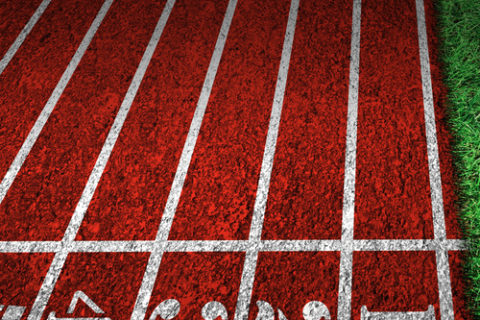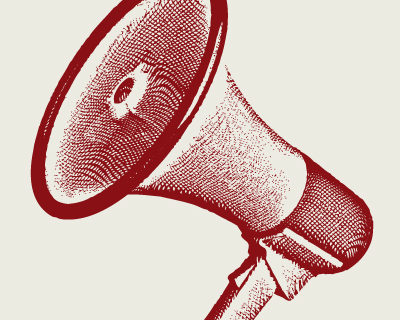Luigi Toiati
The dictionary defines “idleness” as “the action of doing nothing”. This is completely incorrect! Idleness is instead a keyword in a new perspective of luxury. Idling means experiencing the luxury to do something else and this is so exclusive it belongs to me alone and to no one else.
Consequently, luxury means, first of all, giving oneself the permission to pass from the ordinary to the extra-ordinary. Luxury always derives from a non-mechanical relationship with yourself: getting dressed rather than just putting clothes on; tasting food rather than just nourishing yourself; idling rather than spending your time doing nothing.
Luxury is an alibi of the mind, a ‘different where’. Beside its economic implications, it has today more to do with a sort of new self-discovery. ‘Luxury’ stems from the latin root ‘luk’ which means the exuberance of nature (‘lush’), but also ‘excess’.
Thus, it’s not completely by chance that luxury is still associated with cultural biases: usual vocabulary attributes it as “the unnecessary… an exhibition of wealth and magnificence”. I think this is currently only applicable to the ambiguous oxymoron represented by mass luxury, and to those bombastic, mental credit cards represented by accessibility and participationism. Mass luxury may be due to the need of experiencing the comfort of reassuring equality, not among the equals but rather , among the alleged followers of someone else’s “savoir vivre”.
The object of desire brings about social approval, it makes us feel protected, it signals a state of real or desired membership. Because of this, the market is currently trying to inconsistently sell either prestige and austerity to financially less privileged social classes.
“People love to boast about the magnificence of their wealth … just because they’re unable to invent something different!” says Li Liwen “This is why they have to accept living in utter ostentation”.
The two sides of luxury
Luxury reflects two mental attitudes:
- Prestige, which is determined by the price of an object, that’s quite often trendy, rather than by its elegance. This is luxury meant in its typical sense, as a form of ostensive possession or status symbol.
- Privilege, represented by the exclusiveness of the object, also from an emotional respect and not necessarily by its expensive price: a custom-made handbag, or also just having enough free time for a walk.
In both cases there’s a symbolic exchange:
- Prestige, ostentation requires consent, they live on it even if just in the form of envy for the owner
- Oppositely, privilege is a private experience of luxury, that doesn’t require social approval and is even more enjoyable if kept secret: my collection, I walk only for my own pleasure.
Towards the Humanism of Luxury
But, almost unintentionally, a new humanism of luxury is also creeping forward, that is the dialectical relationship between the good, in the sense of a privilege, and the entire life-style of the individual. This dialectic is above all private, personal.
Luxury then doesn’t just seem something extraordinary that translates into a form of waste or ostentation; it’s instead perceived as an opposite to visibility, to “public” mass-luxury.
“Being different from the mass but behind the curtains”.
Mass luxury has not meant a greater quality of life, this is why we are re-discovering the luxury in the experience of idling, enjoying time, forming your personal culture. In everyday-life, luxury doesn’t just mean traveling to the Caribbean, but may encompass living near a green area where you can take your children; it doesn’t mean owning a Ferrari but instead, being able to walk to work or school. Or, maybe, deciding to just remain at home. “People are unhappy because they are not able to peacefully remain in a room” (B. Pascal, “Thoughts”).
The luxury of idleness is all about making a leap which, at the end, is relatively small, inexpensive and private. Hence, idleness doesn’t mean the root of all bad habits , but rather of slow living!
Nowadays, there’s a lot of emphasis on the idea that not smoking or eating will make our life longer. Mass luxury doesn’t include living but, instead, surviving at any cost through the use of drugs, hibernation and futile care. I wonder, is there sense in extending the duration of life rather than improving its quality? The stigma against food and smoke means an ethical crusade against idleness, because they are “arrogantly normal” and are the expression of the idle simplicity of luxury.
Idleness is the most modern version of luxury, a completely private type of it. Beside the “frugal abundance” that Latouche states, I propose the luxury of idleness that’s reflected in the slow life, moves into the idea of moving away from the restless mass and, in Bertrand Russell’s company, of learning to think of oneself.
But be careful. Not doing anything or lazing is not the same as this new paradigm of idleness or luxury. “The so-called idleness…. doesn’t imply not acting at all, instead it means doing a lot of all that’s not envisaged in the dogmatic formularies of the dominating class” (R.L.Stevenson)
Idleness is therefore taking the characteristics of a new post-capitalist humanism, a true renaissance of the spirit of the individual, who’s now completely uninterested in any form of “aggregation”. A new notion of freedom is arising, opposing the idea of public luxury, and achievable through a conscious practice of an idle simplicity of luxury because, “What’s difficult is not conquering freedom but using it” (T. Huxley).
Idleness as a change: towards the renaissance of the individual
Why am I proposing idleness as a change, as a new renaissance? That’s maybe because I pretend to be a visionary, but above all, it is because I ‘d like to suggest you a kind of mental gym.
Marketing is our bread and butter. Nevertheless, it doesn’t mean life, it’s just part of it; we’re not married to marketing but to our own partner; we don’t research our children, but rather try to educate them. Before being researchers we are, above all, human beings.
Therefore, if things are changing, and gosh, they are, we have to be ready to change too. How can we? I don’t know, but if someone has a crystal ball, would they be so kind to explain it please?
Our password is therefore “renaissance”. Its etymon is not “new birth”, but instead “a birth that repeats”. Philosophy talks about historical courses and re-courses: these usually happen together with major changes that are not only social but affect the very concept of social life.
Are we sure that the economic crisis is just a source of troubles, or doesn’t it also prompt a new way of thinking and a new approach to consumption? Will the market accept the idle simplicity of luxury, which is not based on wealth but rather on mental wellbeing? “As long as we have enough time, we should choose to change route, a radical transformation of our way of living, thinking and communicating” (Erwin Laszlo)
As marketing tried to control idleness, it transformed it into mass-laze. It made sponsors richer, while generating the most absurd, boring and populist oxymoron I ever experienced: “planned” free time, like “trendy” exhibitions and shows that you “absolutely must not miss!”.
Qualitative research will find its renaissance only by getting rid of its baroque stagings and by learning as individuals, that: “The art of being happy lies in the power of extracting happiness from common things “(H.W. Beecher). The current crisis may be our renaissance, because: “It brings creativity…it helps civilization to rise, and the best to emerge” (A. Einstein).
“We must reinvent the values of next civilisation on a new frugality, by distancing ourselves from materialism and focussing on action” (Philippe Starck). Idleness is individual because your choice is individual, because freedom is individual. “True idleness is based on complete responsibility and freedom derives from total independence” (Hodgkinson).
“The real drama of human beings is their complete inability to recognise their inner power, their inner divine “ (Nelson Mandela).
What if, tomorrow, a new definition of the concept of group became necessary, a new concept that would no longer be based on anything public, but rather on what’s private, on what’s chosen rather than suggested, on what’s unpredictable rather than predictable? What would marketing do, if our actions no longer “reacted” to trends but “enacted” individual choices?
I don’t have the answer to this, yet I’d like to finish with a statement by Debbie Lemon: “ So, can we and should we be researching and marketing to these consumers? My answer is probably no … unless your brand can demonstrate strong ethical values and a means of benefiting small communities, you’re barking up the wrong tree” (Debbie Lemon, Lemonaid Research, In Brief, March/April 2012).
Idleness glitters like precious luxury, the trouble is abandoning standardisation: “We are all living in the gutter, but some of us are looking at the stars” (O.Wilde).
Luigi Toiati is founder of Focus SrL in Italy



1 comment
A very good analysis of what will probably count in the way of marketing luxury goods in the near future. Men and women who are popular thanks to their smart intelligence, innovative spirit, courage, self commitment and spirituality are probably better ambassador for luxury brands than beautiful models who are (too often) desperatly shown as brainless persons in our glossy mags. Even the emerging countries will come to a more spiritual conception of luxury within ten years. They will not spend less, but differently, as we start to do in Europe and Japan.